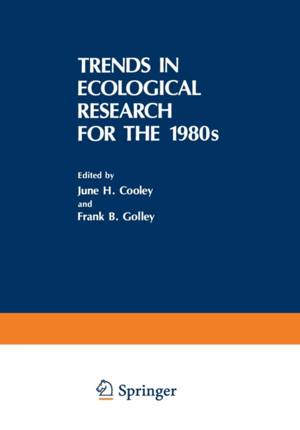
- Retrait gratuit dans votre magasin Club
- 7.000.000 titres dans notre catalogue
- Payer en toute sécurité
- Toujours un magasin près de chez vous
- Retrait gratuit dans votre magasin Club
- 7.000.0000 titres dans notre catalogue
- Payer en toute sécurité
- Toujours un magasin près de chez vous
Trends in Ecological Research for the 1980s
83,95 €
+ 167 points
Description
Is ecology at a crossroad? After three decades of rapid, though somewhat anarchic development, many ecologists now are beginning to ask this question. They have the feeling of no longer belonging to a unified and mature scientific discipline. Many of them claim to be mere empiricists, whereas others are proud to be considered theoreticians. Each side has its own journals and holds its own specialists' meetings, tending to disregard the achievements of the other. The communication gap between the two schools is quickly widening, to the detriment of both. To make things worse, the word "ecology" now has a different meaning for the professional biologists and the general public. Ecology is still considered as a creditable (though rather "soft") scientific discipline by the former, whereas it is perceived as a new, non-conformist political philosophy by the latter. Empirical ecologists are fundamentally naturalists who enjoy the immense complexity of the natural world and devote their lifetimes to the description of the many adaptive characteristics--morpholog- ical, biological, or behavioral--of the hundreds of thousands of species sharing the earth with us. They generally are ignorant of, if not allergic to, the use of any mathematical representation of living phenomena. They' feel that ecological theory is rapidly becoming a mathematical game that has lost any contact with the "realities of life.
Spécifications
Parties prenantes
- Editeur:
Contenu
- Nombre de pages :
- 344
- Langue:
- Anglais
- Collection :
Caractéristiques
- EAN:
- 9781468449006
- Date de parution :
- 07-03-12
- Format:
- Livre broché
- Format numérique:
- Trade paperback (VS)
- Dimensions :
- 178 mm x 254 mm
- Poids :
- 616 g

Les avis
Nous publions uniquement les avis qui respectent les conditions requises. Consultez nos conditions pour les avis.





